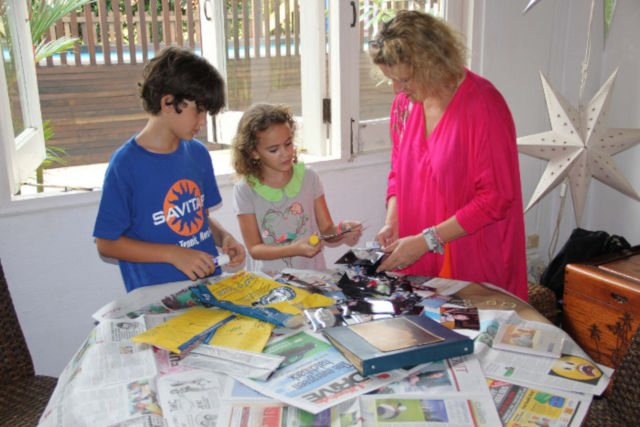During their preschool years, some children go through a stage of stuttering, also known as stammering. Stuttering in toddler is a disruption to the flow of speech, in the form of repeating sounds, syllables, words (I, I, I w..wa… want), silent blocking (I *pause* want) and sound prolongations (I wwwwwwwwant). Secondary features of stuttering such as muscle tension, facial twitches and rapid eye blinking may accompany the stutter. Stuttering affects about 3-5% of children between the ages of 2 to 5 when they start to put words together to form short sentences.

Most of the time, the stuttering problem resolves naturally; however, for some children, stuttering continues beyond their preschool years. Parents often become worried when their child stumbles over spoken words, affecting the fluency of their speech. Some children have also complained of being teased in school when they are unable to speak fluently.
As speech therapists, we often receive questions regarding stuttering from concerned parents. How alarmed should parents be, and when should they seek help to resolve their child’s stuttering problem? In this article, we attempt to debunk some myths and misconceptions about stuttering in toddlers.
Fact or Myth?
“My child stutters because he is anxious or stressed”
Answer: Myth
The exact cause of stuttering is not known; however, recent research seems to indicate that childhood developmental stuttering could be due to a processing problem in the brain that is responsible for spoken language. Stuttering runs in families, indicating a relatively strong genetic link. About 60% of people who stutter have a close family member who stutters too. I recall once making a phone call to the mother whose child was stuttering, only to find out that his mother has a severe stutter too.
Anxiety and stress are psychological factors. They will not cause a child to develop a stutter but will worsen the stutter. Parents may also be relieved to find out that stuttering is not caused by a bad parenting style.
“A stuttering child is not as intelligent as other children”
Answer: Myth
Stuttering in children is typically a developmental speech difficulty and is not correlated to a person’s intelligence. Children who stutter have been found to have similar processing speed as other children and are able to learn and grasp new concepts just as quickly. In fact, one US-based research found out that the average stutterer’s IQ is 14 points higher than the national average. To further prove the point, there are many successful people who stutter, such as Sir Winston Churchill, King George VI, etc.
“Boys have a higher risk of stuttering”
Answer: Fact
Preschool boys do have a higher incidence rate of stuttering than girls, at about a ratio of 2:1. By 10 years of age, the ratio increases to approximately 4:1. This is because girls tend to recover more naturally from stuttering than boys.
“Don’t worry, the stuttering will definitely go away after some time”
Answer: Myth
Although most children do recover spontaneously from stuttering, the remaining children will require speech therapy intervention to resolve the stutter. At the present moment, it is not possible to ascertain whether an individual child will recover spontaneously or stuttering intervention is required.
Hence, early intervention is strongly recommended, especially when stuttering is accompanied by warning signs such as a family history of stuttering, presence of other speech and language disorders, severe stutter and stuttering that has been on-going for 6 months. If left untreated, stuttering may follow a person till adulthood.
“You cannot stutter when you sing”
Answer: Fact
Yes, people who stutter typically do not stutter when singing or whistling. It is thought that singing activates a smoother voice and prolongs words in the lyrics, resulting in the gentle onset of words and smoother speech compared to conversational speech. Other situations where people who stutter become fluent include speaking at a different pitch and using a stage voice or foreign accent.
“The best way to help my child stop the stutter is to make him repeat the same sentence a few times.”
Answer: Myth
Making the child repeat the same sentence over and over again may make him feel more anxious and frustrated and increase the chance of him stuttering more severely. It is best to allow your child to complete his sentence whenever possible.
To resolve the stuttering problem, it is best to refer him to a speech therapist who will assess the severity of his stutter. Stuttering intervention programs such as the Lidcombe Program may be introduced during speech therapy sessions to reduce his stutter.
How can I help if my child is showing signs of stuttering?
First and foremost, do not interrupt your child when they stutter. Wait for them to complete their sentence. You may want to rephrase your question to reduce the length of their response. During the conversation, show interest in what they say, and not how they say it. Try to create a calm and relaxed mood in the family. Remember that a stressful environment will cause the stutter to worsen. Lastly, please contact a speech therapist as soon as possible, whenever you are concerned about your child’s stutter.
These are some websites that offer helpful information regarding stuttering:
– The Stuttering Foundation
– Australian Stuttering Research Centre
This article is brought to you by the team of speech-language therapists and occupational therapists from The Children’s Therapy Centre. They work with children of all ages with communication, motor or attention difficulties.
* * * * *
Like what you see here? Get parenting tips and stories straight to your inbox! Join our mailing list here.
Want to be heard 👂 and seen 👀 by over 100,000 parents in Singapore? We can help! Leave your contact here and we’ll be in touch.




























































Leave a Comment: